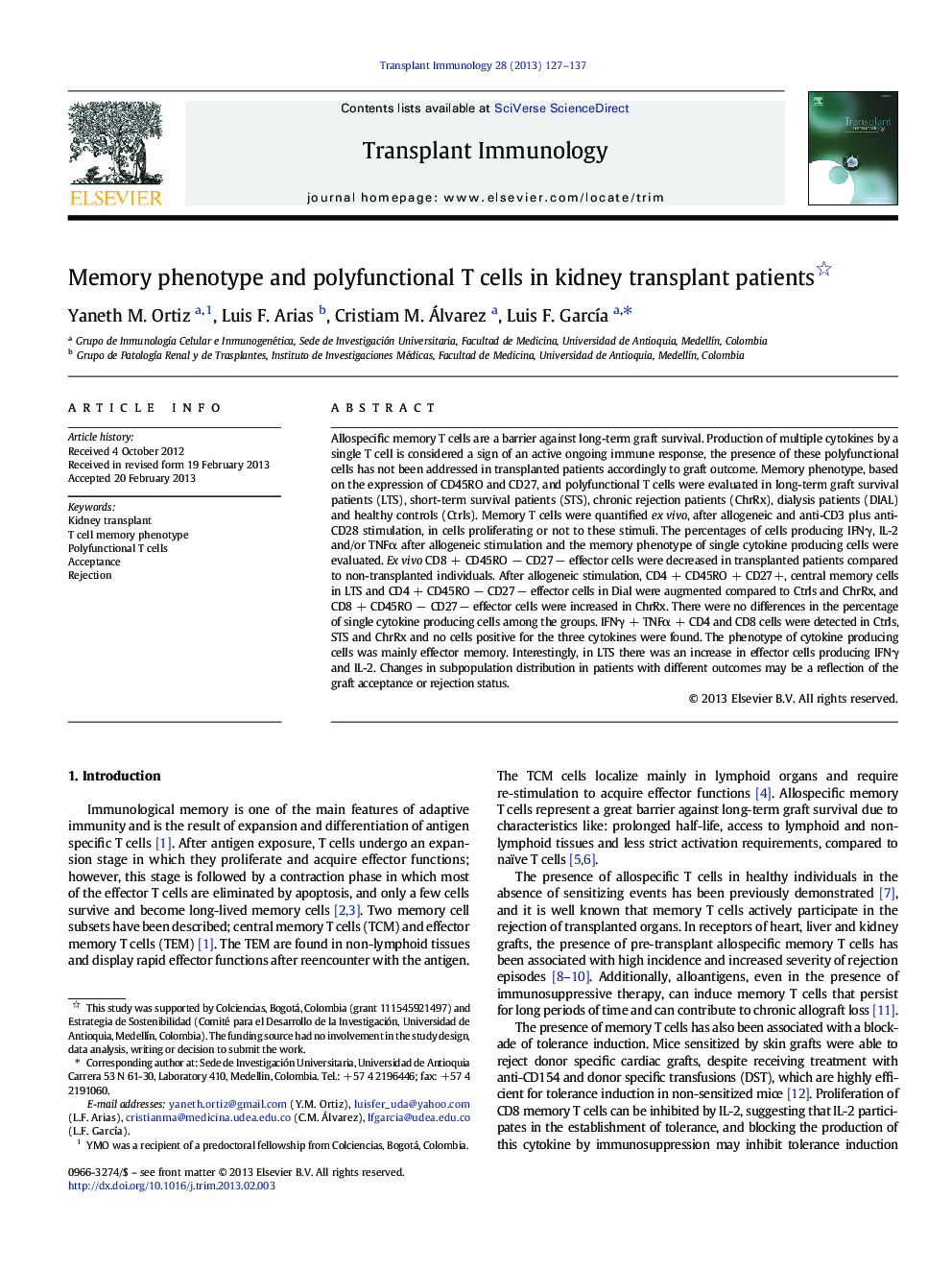| Article ID | Journal | Published Year | Pages | File Type |
|---|---|---|---|---|
| 3392161 | Transplant Immunology | 2013 | 11 Pages |
•Effector circulating cells were increased in transplanted patients.•Central memory cells were increased in LTS patients after allogeneic stimulation.•Effector memory cells were the main cytokine producers.•LTS patients showed high percentages of effector cells producing cytokines.
Allospecific memory T cells are a barrier against long-term graft survival. Production of multiple cytokines by a single T cell is considered a sign of an active ongoing immune response, the presence of these polyfunctional cells has not been addressed in transplanted patients accordingly to graft outcome. Memory phenotype, based on the expression of CD45RO and CD27, and polyfunctional T cells were evaluated in long-term graft survival patients (LTS), short-term survival patients (STS), chronic rejection patients (ChrRx), dialysis patients (DIAL) and healthy controls (Ctrls). Memory T cells were quantified ex vivo, after allogeneic and anti-CD3 plus anti-CD28 stimulation, in cells proliferating or not to these stimuli. The percentages of cells producing IFNγ, IL-2 and/or TNFα after allogeneic stimulation and the memory phenotype of single cytokine producing cells were evaluated. Ex vivo CD8 + CD45RO − CD27 − effector cells were decreased in transplanted patients compared to non-transplanted individuals. After allogeneic stimulation, CD4 + CD45RO + CD27 +, central memory cells in LTS and CD4 + CD45RO − CD27 − effector cells in Dial were augmented compared to Ctrls and ChrRx, and CD8 + CD45RO − CD27 − effector cells were increased in ChrRx. There were no differences in the percentage of single cytokine producing cells among the groups. IFNγ + TNFα + CD4 and CD8 cells were detected in Ctrls, STS and ChrRx and no cells positive for the three cytokines were found. The phenotype of cytokine producing cells was mainly effector memory. Interestingly, in LTS there was an increase in effector cells producing IFNγ and IL-2. Changes in subpopulation distribution in patients with different outcomes may be a reflection of the graft acceptance or rejection status.
